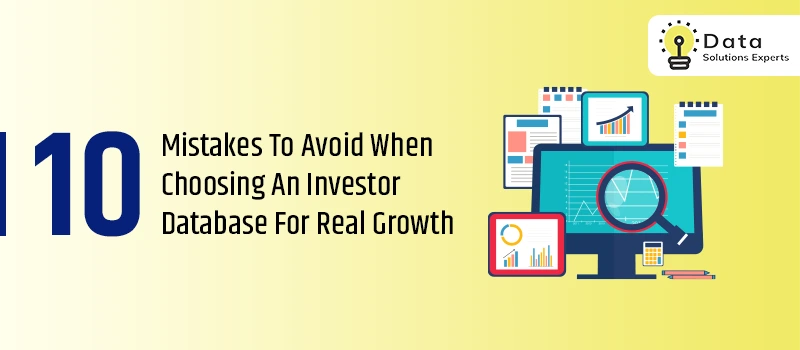From 2021 to 2027, annual global ecommerce sales is projected to increase by nearly $3 billion. This marks an overall increase of 59.8% and an average annual growth rate of 8.1%. (source)
This rapid increase is largely due to more effective e-commerce marketing strategies and the increased use of data for consumer behavior analysis, resulting in more customer acquisitions.
The Role of Data in Crafting Superior E-commerce Experiences
In today’s competitive e-commerce market, data is the key element that allows businesses to set themselves apart. Having an online store is important, but it’s equally vital to create a smooth, personalized experience that keeps customers returning. Data helps businesses to grasp their customers better, covering their shopping habits as well as their purchase history. Businesses are able to customize their marketing efforts, make relevant advice, and frequently predict forthcoming demands using this information. Think of a customer exploring sports gear—giving them a discount on the newest running shoes might just prompt them to finish their purchase. Effective data use is the only way to achieve this degree of personalization. Implementing well-thought-out e-commerce marketing strategies can significantly enhance customer experience and satisfaction. How about reaching out to a reliable database management company in India?
How Databases Help in Understanding Consumer Behavior and Trends
When managed properly, databases are a wealth of information that can uncover important insights into consumer behavior and the emergence of trends. An e-commerce platform can follow what products are in the highest demand, which items are added to wish lists, and what leads to cart abandonment. This information permits businesses to measure the success of different elements and modify product positions, adjust pricing strategies, and improve the whole user experience. Effective consumer behavior analysis is essential for understanding these patterns.
In addition, databases provided by database management services, enable firms to divide their audience into multiple groups according to demographic data, purchase behavior, and interests. This segmentation supports more precise marketing, assuring that each customer gets messaging that connects with them, which enhances the chance of conversion. Every day monitoring of this data helps companies to be proactive in the market, spotting trends rapidly and changing their methods to suit the evolving consumer needs. Businesses looking to grow their presence, especially in regions like India, can benefit from a database of marketing lists in India to effectively target diverse customer segments.
Techniques for Utilizing Marketing Databases to Boost Sales and Customer Engagement
Marketing databases can significantly boost sales and customer interaction, under the condition they are used strategically. Some of the techniques are discussed below:
- Personalized email campaigns: Databases for marketing help companies to personalize email campaigns using customer information that includes records of past transactions and browsing behaviors. Emails for abandoned carts will remind customers about unfinished purchases and urge them to complete their transactions. This degree of customization improves the customer experience and simultaneously increases brand loyalty. FYI: Emails tailored to customer preferences achieve a 29% higher open rate and a 41% higher click-through rate. (source)
- Dynamic product recommendations: By examining customer behavior and their purchase behaviors, businesses can leverage marketing databases to present dynamic product recommendations right on their website. As a user logs in, they receive personalized suggestions that could include products alike to those they have previously bought or looked at. This method boosts relevance for users and, in effect, supports higher average order values by employing effective cross-selling and upselling. And yes, personalized content and product recommendations can reduce bounce rates by up to 45%.(source)
- Audience segmentation: The effective application of marketing databases helps companies divide their audience into many groups according to demographic factors, purchase behavior, and interests. By this method, businesses can design their messaging and promotions to better connect with each segment. A retailer selling fashion could, as an example, arrange customers into divisions namely ‘frequent buyers’, ‘seasonal shoppers’, and ‘new customers’ then deliver tailored promotions or announcements of new products to each division in accordance with their purchasing patterns.
- Targeted Social media advertising: Data from marketing databases can help refine social media marketing. Looking at an example, analysis could reveal that a certain demographic tends to like products that are more sustainable. By doing this, businesses can develop focused social media campaigns that bring attention to their sustainable product lines for this demographic, which boosts the effectiveness of their advertising costs. This way of working ensures that marketing initiatives focus on the right audience, increasing engagement and the return on investment.
- Automated marketing workflows: The automation offered by marketing databases allows for the creation of workflows that respond to customer actions straight away. As an example, when a customer signs up for a newsletter, an automatic welcome email can be set off. Just like that, after a purchase, it is possible to send follow-up emails that suggest complementary products. Automated workflows deliver steadfast communication to customers, which boosts their engagement even if manual intervention is necessary.
Challenges in Managing E-commerce Databases and Solutions
The benefits of leveraging databases are straightforward, but the management of those databases brings about additional difficulties. These are:
- Data fragmentation: Managing data scattered over different sources and platforms, including website analytic tools, social media, and CRM systems, is one of the principal challenges e-commerce businesses face. The fragmentation can give rise to inadequate customer profiles and erratic marketing actions. The answer is to combine these different data sources into a single, unified platform. Software called customer data platforms (CDPs) brings together data, delivering a thorough understanding of each customer that enables better decisions and improved marketing activities.
- Data privacy and security: e-commerce businesses need to carefully track their customer information due to the activation of stricter data privacy guidelines. The GDPR and CCPA require a solid approach to data protection strategies to enforce them properly. The security of essential information demands the concurrent application of encryption and secure access controls. Besides, getting explicit permission from customers before taking their information for collection and use is critical for the reason that it maintains trust levels and discourages legal problems.
- Data accuracy and quality: Effective e-commerce strategies are built on accurate data. However, data gathered from a variety of sources may sometimes be irregular or stale, which may result in wrong perceptions and actions. To keep data integrity, you need to conduct routine database operations that feature data cleaning and validation. Tools based on automation are capable of finding and correcting mistakes, making certain that the data used for analysis and marketing is both reliable and up to date.
- Scalability issues: As e-commerce businesses expand, the amount of data they manage increases rapidly. A misalignment between established database systems may trigger late query responses and reduce the efficiency of operations. Companies can fix this by using scalable cloud solutions like BigQuery or a variety of data warehousing technologies. These platforms are successful at managing large volumes of data, which allows organizations to do real-time data analysis and extract meaningful insights while sustaining great performance.
- User experience impact: A poorly managed database can produce a mediocre user experience. Sound off on a solution in the comments! Let us know what you think. To stop this, organizations must improve their database queries and confirm that the data used for personalization is both accurate and up to date. Tuning and updating performance on a routine basis can hugely improve user experience, resulting in a shopping experience that is smoother and more joyful.
Predictions for the Future of E-commerce Data Management and Marketing
The future of e-commerce data management is poised to be transformative, driven by advancements in artificial intelligence and machine learning. These technologies will allow businesses to better anticipate consumer actions, automate complex data analysis operations, and show insights that were out of reach earlier.
We can anticipate a growing role for techniques of data collection that empower privacy. As consumers become more aware of data usage, firms will have to take on open data practices and must collect data through consent-based techniques.
Moreover, with the growth of e-commerce platforms, the incorporation of augmented reality (AR) and virtual reality (VR) into the shopping process will become ever more usual. This will create another tier of data that businesses can examine to understand customer interaction with 3D product models and virtual stores.
In essence, realizing the ultimate potential of e-commerce depends on making effective use of database insights. Understanding the habits of consumers, putting data-driven marketing strategies into action, and dealing with the obstacles of data management through data management services allow firms to establish engaging and personalized experiences that both pull in new customers and nurture prolonged loyalty. Organizations will need to continuously modify their data strategies and take on fresh innovations to defend their advantage in e-commerce due to technological advancements.
Final Thoughts
In essence, having insights from databases is important for the creation of winning e-commerce strategies that improve sales and boost customer engagement. When used correctly, data can fundamentally change the way businesses relate to their customers, from personalized marketing efforts to solving data management issues. Using customer data, businesses can optimize their acquisition strategies by better understanding which channels and campaigns yield the highest return on investment (ROI). For example, companies using data to analyze customer acquisition cost (CAC) and lifetime value can fine-tune their marketing spend to achieve a balance that maximizes profitability while reducing costs. For you to leverage the full potential of such data, you must have access to the updated databases.
This is when a robust database management company in India,Data Solutions Experts becomes relevant. We offer access to the regularly updated, validated, well-segmented, and extensively tested database of marketing lists in India to help e-commerce enterprises reach more and more customers. For businesses seeking to use a database of marketing lists in India or looking to refine their e-commerce marketing strategies and consumer behavior analysis, partnering with professional database management services like DSE, who understand the subtleties of data architecture and analytics can help businesses control their marketing databases better, raise data quality, and achieve greater insights into consumer behavior.
Those wanting to elevate their e-commerce strategies can find the right direction and access valuable databases from DSE to manage the complexities of modern e-commerce data management and marketing.



